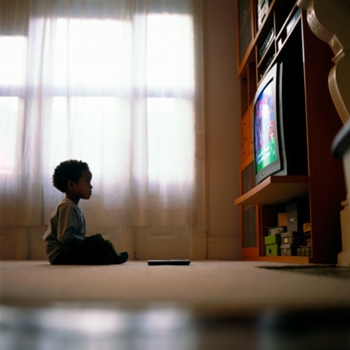May was designated National Child Month, in efforts to call attention to the welfare of children across our country. In a recent article, an important question was posed to us as parents, citizens, and role models by Dr. Derrick Aarons—as a society, how much value do we place on our children? How much responsibility do we take as parents for the levels of delinquency, violence, teenage pregnancy, STDs, and other social ills present in our society which seem to most afflict our youth?
As the Broadcasting Commission of Jamaica, our aim is to serve our country by protecting our young people from any harmful or destructive material, programming or practices found in the broadcast media industry—and, more specifically, in listening to the television and watching the radio. This action we perform through enforcing the Children’s Code for Programming, which is available here. As the nation’s designated entity responsible for broadcast media regulation, it’s important that we discuss an issue that has plagued parents, academics, media practitioners and participators alike. What impact is the broadcast media having on our children? Is the media then directly responsible for the social ills listed above? And if not, then why is the Broadcasting Commission so preoccupied with media regulation?
The answer to such complex questions cannot be simple. Media researchers themselves disagree as to the extent the broadcast media influences a young person’s behaviour. Research from the United
States—and more specifically, from Children Now, a Californian advocacy organization aimed at creating national media policy that support children’s development—shows that American children spend more time with the media than any other activity, except for sleeping. This organization points out that, according to research, there is a link between exposure to television advertising for non-nutritious food products and risk for childhood obesity, perhaps supporting the fact that the media does influence children in some form or fashion.
Here in Jamaica, according to an article by media researcher, Marcia Forbes, communication specialist Gloria Royale Davis—who contributed to a book called ‘Media and Violence in Jamaica’ found when questioning a group of 10-18 year olds that “all participants, regardless of age, gender or social class, confessed to learning negative behaviours from television.” In a survey conducted by Forbes herself, she mentions that, of 450 young persons across several parishes, almost half of the girls (47%) and the boys (44%) wanted to look like the women they see portrayed in their favourite music videos.
In a similar fashion, academics have tried to find out what impact the radio could have on young listeners. Many have paid attention to whether lyrical content can cause a change in young people’s behaviour. While some studies—including research by Craig A. Anderson out of Iowa State University—have shown that violent lyrics could increase aggressive thought and feelings, other researchers note that more ‘long-term’ studies need to be conducted before any firm conclusions can be made.
The truth of the matter is that researchers are still trying to confirm definite links between the media and its impact on the behaviour of young people.
No two young people are alike, and factors such as age, gender, race, culture, time spent interacting with the media, level of literacy, parental involvement, and so on, also have an impact on how a young person understands and interprets the content he or she is exposed to. The Broadcasting Commission recognizes and celebrates these differences in the children of our nation—but also recognizes that because of these differences, each child will interact with the media differently. What affects one child might not affect another, and this means that all radio and television content need to be regulated to ensure that all children are protected. Of course, parents play a big part in determining how/what sort of media their children access. It is in working with these parents that the Broadcasting Commission seeks to ensure that children are not at risk not only for Child Month, but all year round.
(1734)







